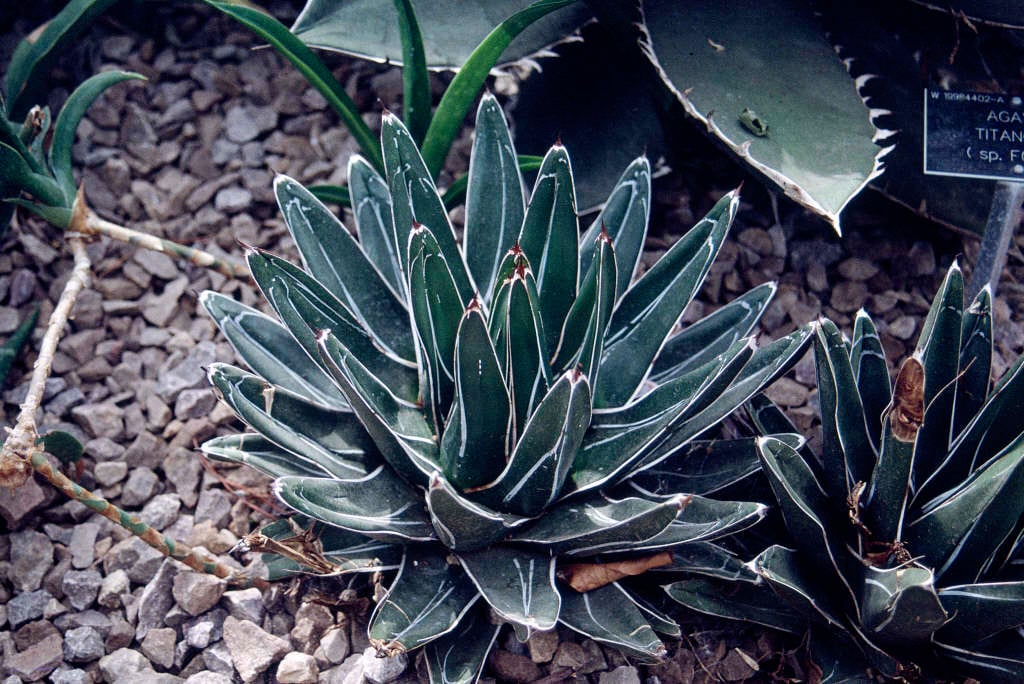Agave victoriae-reginae
royal agave
An evergreen perennial forming a rosette of thick, straight, mid-green, spine-tipped leaves to 30cm in length, with creamy-white flowers borne in narrow, erect or arching racemes to 4m in length
Other common names
Queen Victoria century plantSynonyms
Agave victoriae-reginae f. longifoliaAgave (_scabra_ × _victoriae-reginae_)
see moreAgave victoriae-reginae var. nickelsiae
Agave ferdinandi-regis
Agave victoriae-reginae f. longispina

Buy this plant
Size
Ultimate height
0.1–0.5 metresTime to ultimate height
5–10 yearsUltimate spread
0.1–0.5 metresGrowing conditions
Moisture
Well–drainedpH
Acid, NeutralColour & scent
| Stem | Flower | Foliage | Fruit | |
| Spring | Green | |||
|---|---|---|---|---|
| Summer | Cream | Green | ||
| Autumn | Green | |||
| Winter | Green |
Position
- Full sun
Aspect
South–facing or West–facing
Exposure
ShelteredDrought resistance
Yes Hardiness
H2Botanical details
- Family
- Asparagaceae
- Native to GB / Ireland
- No
- Foliage
- Evergreen
- Habit
- Tufted
- Potentially harmful
- Skin irritant. Wear gloves and other protective equipment when handling. Pets (dogs, cats): harmful if eaten. For further information and contact numbers regarding pets, see the HTA guide to potentially harmful plants
- Genus
Agave can be perennial or monocarpic succulents, forming rosettes of usually rigid, fleshy, spiny-edged leaves, with funnel-shaped flowers in racemes or panicles often much taller than the rosettes
- Name status
Correct
- Plant range
- Mexico
How to grow
Cultivation
Grow under glass in a standard cactus compost, water freely in summer and apply a balanced liquid fertiliser 3-4 times during the growing season. May be bedded or stood out in borders or patios in summer. Keep almost dry in winter. Provide winter protection, or grow in a container and overwinter in a greenhouse or conservatory. See houseplant cacti and succulent cultivation for further information
Propagation
Propagate by offsets taken in spring or autumn
Suggested planting locations and garden types
- Patio and container plants
- Coastal
- Mediterranean climate plants
Pruning
No pruning required
Pests
May be susceptible to scale insects
Diseases
Generally disease-free
Get involved
The Royal Horticultural Society is the UK’s leading gardening charity. We aim to enrich everyone’s life through plants, and make the UK a greener and more beautiful place.